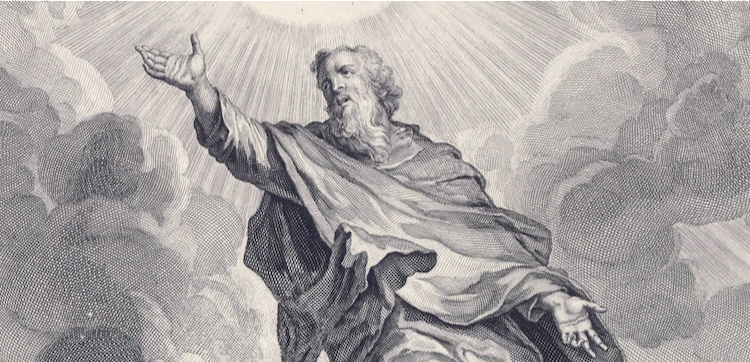Theological Term of the Week: Imputation
 Thursday, October 6, 2022 at 3:30AM
Thursday, October 6, 2022 at 3:30AM 
“The attribution of a verdict or quality from one party to another A reckoning or crediting of something to a person.”1 Used theologically, it refers the crediting of the personal guilt or personal righteousness of another, as in the imputation of the sin of Adam to all his descendants, the imputation of the sins of human beings to Christ, or the imputation of the righteousness of Christ to believers.
- From scripture:
Therefore, just as sin came into the world through one man, and death through sin, and so death spread to all men because all sinned— 13 for sin indeed was in the world before the law was given, but sin is not counted where there is no law. 14 Yet death reigned from Adam to Moses, even over those whose sinning was not like the transgression of Adam, who was a type of the one who was to come.
15 But the free gift is not like the trespass. For if many died through one man’s trespass, much more have the grace of God and the free gift by the grace of that one man Jesus Christ abounded for many. 16 And the free gift is not like the result of that one man’s sin. For the judgment following one trespass brought condemnation, but the free gift following many trespasses brought justification. 17 For if, because of one man’s trespass, death reigned through that one man, much more will those who receive the abundance of grace and the free gift of righteousness reign in life through the one man Jesus Christ.
18 Therefore, as one trespass led to condemnation for all men, so one act of righteousness leads to justification and life for all men. 19 For as by the one man’s disobedience the many were made sinners, so by the one man’s obedience the many will be made righteous. 20 Now the law came in to increase the trespass, but where sin increased, grace abounded all the more, 21 so that, as sin reigned in death, grace also might reign through righteousness leading to eternal life through Jesus Christ our Lord (Romans 5:12-21 ESV).
For our sake he made him to be sin who knew no sin, so that in him we might become the righteousness of God (2 Corinthians 5:21 ESV).
- From the London Baptist Confession, chapter 6:
2. Our first parents, by this sin, fell from their original righteousness and communion with God, and we in them whereby death came upon all: all becoming dead in sin, and wholly defiled in all the faculties and parts of soul and body.
3. They being the root, and by God’s appointment, standing in the room and stead of all mankind, the guilt of the sin was imputed, and corrupted nature conveyed, to all their posterity descending from them by ordinary generation, being now conceived in sin, and by nature children of wrath, the servants of sin, the subjects of death, and all other miseries, spiritual, temporal, and eternal, unless the Lord Jesus set them free.
- From the London Baptist Confession, chapter 11:
1. Those whom God effectually calleth, he also freely justifieth, not by infusing righteousness into them, but by pardoning their sins, and by accounting and accepting their persons as righteous; not for anything wrought in them, or done by them, but for Christ’s sake alone; not by imputing faith itself, the act of believing, or any other evangelical obedience to them, as their righteousness; but by imputing Christ’s active obedience unto the whole law, and passive obedience in his death for their whole and sole righteousness by faith, which faith they have not of themselves; it is the gift of God.
Learn more:
- B. B. Warfiled: Imputation
- Bob Burridge: The Meaning of Imputation
- International Standard Bible Encyclopedia: The Meaning of Imputation in the Bible
Related terms:
1Pocket Dictionary of the Reformed Tradition by Kelly M. Kapic and Wesley Vander Lugt
Do you have a a theological term you’d like to see featured as a Theological Term of the Week? Email your suggestion using the contact button in the navigation bar above.
Clicking on the Theological Terms button above the header will take you to an alphabetical list of all the theological terms.


